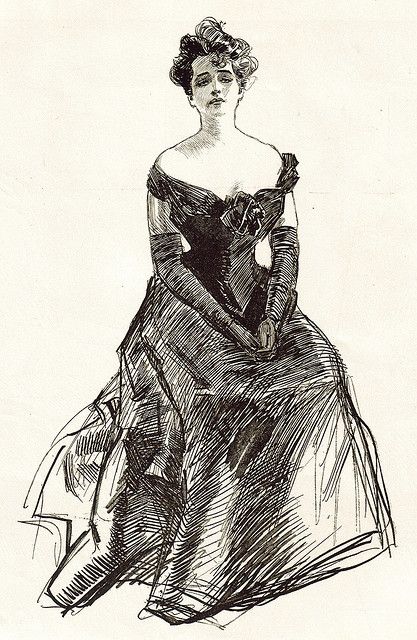When it comes to fashion, things go in and out of style from decade to decade. The same can be said for the idealize female body. Looking back over the last century, what has been considered attractive has changed drastically. While some of the changes have been more subtle and some have been more dramatic, it’s crazy to see how much everything has shifted over time. The ideal body type for woman often reflects how society views women in general, and that will influence who becomes a celebrity. Here is how the idealize female body type has changed in the past century.
The Gibson Girl Of The 1910s
In the 1910’s, publishing photographs was a lot more expensive than it is today. That’s why at the time, illustrators were hired by companies to create ads for their products. One of the best known illustrators was Charles Dana Gibson, whose illustrations of women in corsets and dresses gave them the signature hourglass figure and a straight posture that became known as the Gibson Girls.

1910s Gibson Girl


